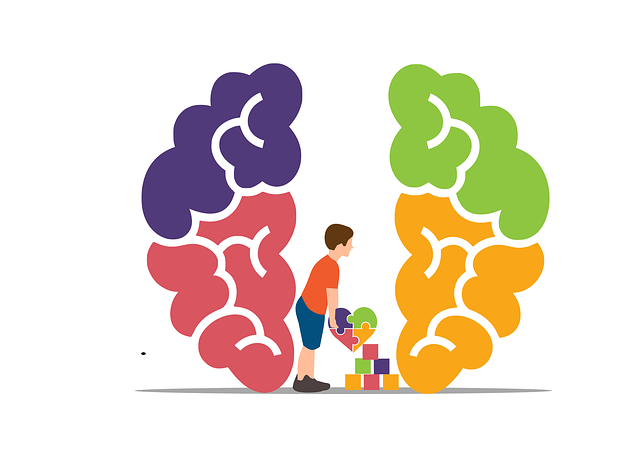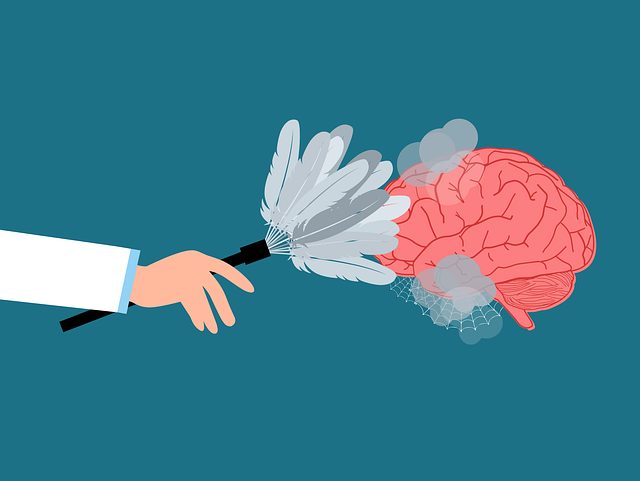Northglenn Functional Neurological Disorder Therapy (NFNT) provides comprehensive mental wellness support, focusing on symptom management, coping strategies, and resilience building. Its evaluation process combines qualitative and quantitative methods, including risk assessments and standardized surveys, to measure improvements in symptoms, cognitive function, and quality of life. Quantitative data tracks changes in anxiety, depression, social interaction, and optimism, while qualitative techniques delve into personal stories and cultural sensitivity for tailored support. NFNT actively incorporates feedback from participants to refine its programs, emphasizing emotional intelligence and compassion cultivation. This multifaceted approach ensures the therapy's effectiveness in managing FNDs and promoting holistic mental wellness.
Mental wellness programs are gaining prominence, with various approaches emerging to address diverse psychological needs. This article explores comprehensive evaluation methods for such programs, offering insights into both quantitative and qualitative techniques. From understanding the intricacies of mental health initiatives to assessing their impact, we delve into case studies like Northglenn Functional Neurological Disorder Therapy. Additionally, it discusses integrating feedback for continuous improvement, highlighting best practices in evaluating and enhancing wellness programs.
- Understanding Mental Wellness Programs and Their Evaluation
- Assessing the Efficacy of Northglenn Functional Neurological Disorder Therapy
- Quantitative Methods for Measuring Program Success
- Qualitative Approaches in Mental Health Program Evaluation
- Integrating Feedback for Continuous Improvement
Understanding Mental Wellness Programs and Their Evaluation

Mental wellness programs are designed to support individuals dealing with various mental health challenges, including conditions like Northglenn Functional Neurological Disorder Therapy, crisis intervention guidance, and trauma support services. These programs aim to enhance overall well-being, improve coping strategies, and foster resilience. Evaluation methods play a crucial role in understanding the effectiveness of such initiatives. By employing strategic assessment tools, professionals can measure the impact and success of mental wellness interventions.
Comprehensive evaluation involves pre and post-program measurements, comparing participant outcomes against established benchmarks. This process enables researchers and practitioners to identify effective practices, areas for improvement, and individual responses to therapy. For instance, Northglenn Functional Neurological Disorder Therapy might utilize specific assessment protocols to track changes in symptoms, cognitive functioning, and quality of life over time, ensuring that the program delivers tangible benefits to those seeking mental wellness support.
Assessing the Efficacy of Northglenn Functional Neurological Disorder Therapy

The evaluation of mental wellness programs is a crucial aspect of ensuring their effectiveness and adaptability to individual needs. In the context of Northglenn Functional Neurological Disorder Therapy (NFNT), assessing efficacy involves a multi-faceted approach. This includes both qualitative and quantitative methods to gauge the program’s impact on participants’ mental health and emotional healing processes.
One key method is through comprehensive risk assessment for mental health professionals, which helps in identifying potential risks and benefits associated with NFNT. By analyzing participant outcomes, therapists can determine the success of the therapy in addressing specific neurological disorders. This data-driven approach allows for continuous improvement in the program’s design and delivery, ensuring it remains a robust tool for promoting mental wellness.
Quantitative Methods for Measuring Program Success

Quantitative methods play a crucial role in evaluating the success of mental wellness programs like Northglenn Functional Neurological Disorder Therapy. These approaches involve using structured tools and surveys to measure specific outcomes, providing concrete data on program effectiveness. Researchers and therapists can assess changes in symptoms, such as anxiety or depression levels, using standardized questionnaires administered before and after the intervention. This allows for a clear picture of the program’s impact on participants’ mental health.
For instance, Social Skills Training programs often employ quantitative methods to gauge improvements in social interaction and communication. Self-Care Practices can be evaluated through regular check-ins that track changes in daily routines and habits. Positive Thinking interventions might utilize scales measuring optimism and resilience, with pre-post comparisons indicating the program’s success in fostering a more positive mindset. These quantitative evaluations are essential for refining programs, securing funding, and demonstrating their value to both clients and stakeholders.
Qualitative Approaches in Mental Health Program Evaluation

Qualitative approaches play a pivotal role in understanding the nuances and complex dynamics of mental wellness programs, particularly when addressing issues like functional neurological disorders (FNDs). Unlike quantitative methods that focus on statistical analysis, qualitative techniques delve deeper into individuals’ experiences, perceptions, and interactions with therapy. For instance, Northglenn Functional Neurological Disorder Therapy could utilize in-depth interviews, focus groups, and observations to capture the subtle changes and personal insights that quantify data might miss.
These methods are particularly valuable for exploring sensitive topics like compassion cultivation practices and self-care within mental healthcare. By embracing cultural sensitivity, therapists can uncover unique challenges and strengths among diverse populations, ensuring tailored interventions. This holistic approach not only enhances therapeutic outcomes but also fosters a more inclusive and effective mental wellness ecosystem, addressing the specific needs of each individual, including those with FNDs.
Integrating Feedback for Continuous Improvement

Effective mental wellness program evaluation involves actively integrating feedback for continuous improvement. At Northglenn Functional Neurological Disorder Therapy, we believe that gathering insights from participants is vital to enhancing our services and ensuring they remain relevant and impactful. This process includes soliciting feedback on various aspects such as therapy techniques, support systems, and overall program satisfaction. By listening to individuals’ experiences, we can identify areas for refinement and adapt our strategies accordingly. For instance, incorporating elements of Emotional Intelligence and Compassion Cultivation Practices into coaching programs has shown promising results in developing participants’ coping mechanisms and fostering a supportive community.
This feedback loop not only drives the evolution of mental wellness coaching programs but also strengthens the therapeutic bond between facilitators and participants. By embracing this dynamic approach, Northglenn Functional Neurological Disorder Therapy remains committed to delivering exceptional care that resonates with individuals on their journey towards holistic mental wellness.
The evaluation of mental wellness programs, such as the Northglenn Functional Neurological Disorder Therapy, is a multifaceted process that combines both quantitative and qualitative methods. By assessing efficacy through controlled studies and measuring success with statistical tools, we gain valuable insights into program performance. Qualitative approaches offer deeper understanding through stakeholder feedback, while continuous integration of this feedback ensures ongoing improvement. These combined strategies are essential for optimizing mental health support and tailoring treatments to best meet individual needs.














